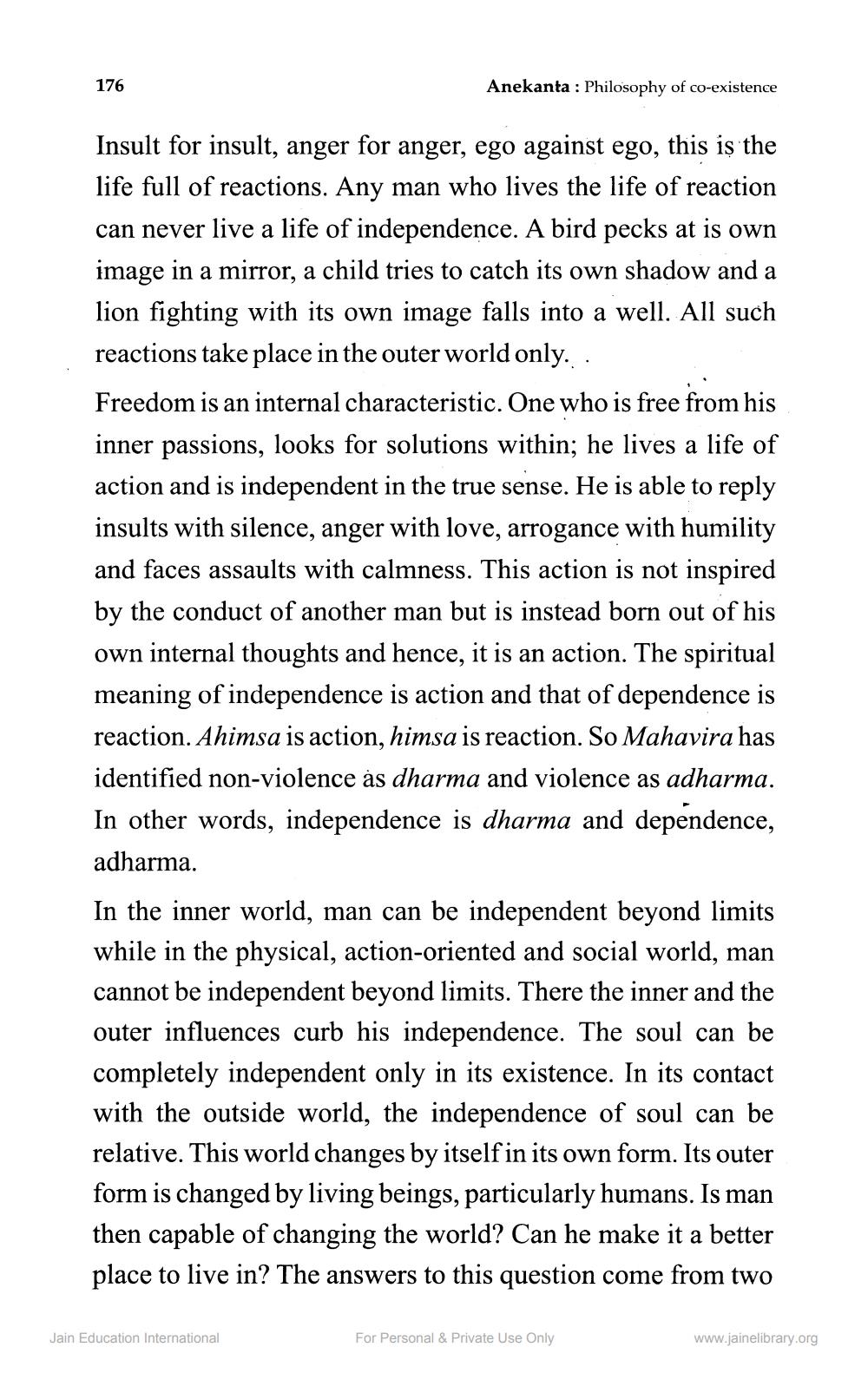________________
176
Anekanta : Philosophy of co-existence
Insult for insult, anger for anger, ego against ego, this is the life full of reactions. Any man who lives the life of reaction can never live a life of independence. A bird pecks at is own image in a mirror, a child tries to catch its own shadow and a lion fighting with its own image falls into a well. All such reactions take place in the outer world only. Freedom is an internal characteristic. One who is free from his inner passions, looks for solutions within; he lives a life of action and is independent in the true sense. He is able to reply insults with silence, anger with love, arrogance with humility and faces assaults with calmness. This action is not inspired by the conduct of another man but is instead born out of his own internal thoughts and hence, it is an action. The spiritual meaning of independence is action and that of dependence is reaction. Ahimsa is action, himsa is reaction. So Mahavira has identified non-violence as dharma and violence as adharma. In other words, independence is dharma and dependence, adharma. In the inner world, man can be independent beyond limits while in the physical, action-oriented and social world, man cannot be independent beyond limits. There the inner and the outer influences curb his independence. The soul can be completely independent only in its existence. In its contact with the outside world, the independence of soul can be relative. This world changes by itself in its own form. Its outer form is changed by living beings, particularly humans. Is man then capable of changing the world? Can he make it a better place to live in? The answers to this question come from two
Jain Education International
For Personal & Private Use Only
www.jainelibrary.org




